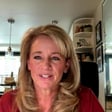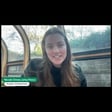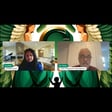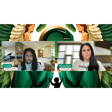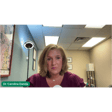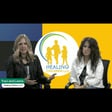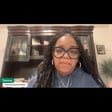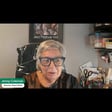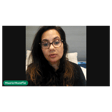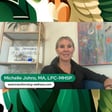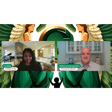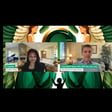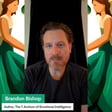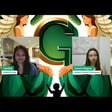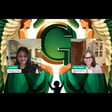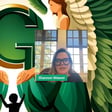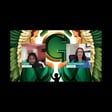Become a Creator today!Start creating today - Share your story with the world!
Start for free
00:00:00
00:00:01

Season Two/Episode Six: From Foster Care to Founder: Mobilizing Hope Through Mobile Mentorship
In this episode, we meet a leader who channeled her experience as a teen mom in foster care into creating real solutions for vulnerable youth. Through The L.I.V.E. Outreach, founded in 2014, Malika Williams is reshaping how support services connect with young people. What started as a program helping young women transition from foster care has grown into a dynamic youth support network, now launching a Mobile Mentoring Hub.
Join us for a conversation about turning personal experience into meaningful action. See how direct experience with the foster care system shapes an approach to youth support that's both practical and deeply personal.
Transcript
Introduction to Guardians of Hope
00:00:06
Speaker
Welcome to the Guardians of Hope podcast, where we bring together parents, nonprofits, legal and medical experts dedicated to positively impacting children's lives. I'm your host, Cynthia Ramseran. The thoughts and opinions of my guests are not necessarily my own. So thank you all for joining and sharing. All right. Welcome, everyone.
Spotlight on Live Outreach
00:00:28
Speaker
Today we are honored to have with us Malika Williams, founder of the Live Outreach, an organization that's redefining what support looks like for youth in Detroit. From her own experiences as a teen mom in foster care to launching a nonprofit
00:00:46
Speaker
that's touched countless young lives since 2014, Malika's story is one of resilience and vision.
Mobile Mentoring Hub Innovation
00:00:54
Speaker
Now she's taking her mission mobile with an innovative mobile mentoring hub project that's set to break down transportation barriers and bring vital resources directly to families in need. Welcome, Malika. Thank you so much for joining. Good morning. Yes, how are you? Good morning.
00:01:16
Speaker
Good. Thanks. thanks for what me on here Thank you so much. Of course. Thank you for joining us. I want to talk more about your journey. So let's start with from being in foster care to founding the live outreach. It's remarkable what you've done. Could you take us back to the moment when you realized you needed to create this organization and what spark led to the formation in 2014?
00:01:44
Speaker
You know, it was a thought that I had and thinking about doing for a while. Originally, yeah I wanted to get like a transitional house. So um I was speaking with a former foster mother that I had a really positive relationship with. And she had some interesting information. And so I said, well, you know, maybe, you know, I should really, and she really just one day said, well, why don't you you know just start putting the paperwork together to just, you know, kind of do it.
00:02:14
Speaker
And I don't know, I just, you know, it was just, I want to bring program in and I want to connect with that particular demographic because I felt like it was just a demographic that was, you know, you didn't hear a lot of people supporting like you would want it. So I know the resources wasn't there for me or it wasn't, you know, provided where I it was readily available. So I wanted to be able to provide that for like a younger version of myself. So I created it, molded, lived, I guess to a capacity of, a I would always say like ah for the younger me for what I needed at that time. So just trying to give back.
00:02:56
Speaker
So the live outreach began by focusing on young women. You mentioned an example of young women transitioning from foster care, but you've expanded to serve all youth ages 12 to 17, right? More broadly, what led to that evolution and what have you learned about the needs of young people along the way?
Understanding Evolving Youth Needs
00:03:19
Speaker
What I'm learning is, uh, you know, as the world evolved, right, you got technology evolving, things with AI.
00:03:32
Speaker
The kids just so different than what it was for me when I was growing up. So you have to look at them as individual people. And I think when we were children and we were growing up, because I'm an Unfortunately, you know I'm an 80s baby, so I kind of grew up in the 90s era of you know when crack was real prevalent in people's households and you know it destroyed a lot of families. And so I'm of a product of something in that nature. So you know you know a lot of kids experience you know drugs and violence and different things that created is so many barriers that it's hard sometimes to get out of that.
00:04:11
Speaker
um you know When you start looking at other homes, though, they might not have experienced those property-stricken situations. They might have experienced some things where ah they're not living with a loved one.
Resource Challenges in Detroit
00:04:26
Speaker
you know they're in foster care or um and it might be because of those type of situations or it is I feel like the situations vary but everybody had their own individual issues that they cope with so it's like you have to look at the individual so that's what I'm learning about the kids like not only do the young ladies need us the young men need us too and you don't have enough male especially black male role models
00:04:52
Speaker
and these urban communities where you know these kids is needed and you know these young men now especially in the city of Detroit the limit to the recreation centers and the libraries and stuff have tremendously like depleted since I've been a kid in the city of Detroit so even though you know it's very nice parts of the city Detroit is a beautiful city but some of those areas that struggling and weak you know, it was like third worst, you know, country, honestly, at some point, whereas, you know, it ain't no healthy, you know, food options or, ah you know, no ah grocery stores, things that people might be in those scarce areas where it might be only two or three houses on the block, you know, just, I don't know, it's just a lot that we can do more
00:05:39
Speaker
And um so, you know of course, expanding it to a bigger broader audience was most definitely more like we want to impact more people.
00:05:51
Speaker
That makes perfect sense. So Malika, let's talk more about the mobile mentoring hub. It's such an innovative solution to transportation barriers. Could you walk us through how you created this idea and what impact you'll hope it will have on Detroit families and what services you'll provide?
Community Feedback and Hub Design
00:06:12
Speaker
So with the mobile mentor, one of the things, like I always said, I wanted to have something stationary that you know represented what live was about in just a small meeting. Because when you're a grassroots, you're trying to come up with the most innovative ways with low overhead costs is possible starting up right because you don't have a necessary support as you would to be as successful as most like larger organizations that might have those donors and investors and private donors you know all of those things that make them be able to thrive so
00:06:48
Speaker
is definitely you gotta get if you know you gotta get creative. So ah someone that we knew you know that I knew had this ah like 14 passenger bus and I kind of got to ask and like, hey, you know you got any plans to do anything with that?
00:07:05
Speaker
And they were like, um you know, that they had bought it and they felt like they had got it for a pretty good price and they didn't want to pass an opportunity to have something like that. So I said, i you know what, I really think I can do something with that. And so that's kind of how that idea sparked. And so um it was some applications that, or I came across a newsletter about the University of Detroit Mercy, Detroit, a level of design.
00:07:33
Speaker
would get with certain nonprofits and they would design. you know So say for an example, I got a building and I needed them to design my, you know we would work together to come up with a design and my thought process through the whole thing. And it it came under some stipulations, like I had to have so many community engagements to allow them to evaluate what the community thought of this idea, right? Which I love that because of course it allowed us to get data to know what people in the community want, right?
00:08:04
Speaker
So that I thought that was real awesome. I was just wondering how it's going to impact the community, what services you're going to provide.
Services of the Mobile Hub
00:08:11
Speaker
Yeah, so the services it's going to provide. is So we're planning the way that they design the the bus.
00:08:19
Speaker
It is have storage and have transportation where we can still potentially transport eight to 10 kids um safely to maybe a field trip or maybe if this was the way because, like I said, the barrier is a lot of time with the program and is the key is getting rather picked up or dropped off. The parents is working.
00:08:41
Speaker
You know, maybe they don't have a vehicle in VR type of circumstances that eliminates the key is being able to get some of these resources. So we that's, you know, how it kind of was birth. oh So we want to be able to have, you know, literacy literacy is a big part of what lives is about reading.
00:08:59
Speaker
We understand that Detroit do have a literacy, you know, our rate is not where we need it to be even, you know. And so ah we will have books on their fresh fruit, toiletry items, possibly, you know, you know, socks and underwear and and things like that. T-shirts, you know.
00:09:18
Speaker
Hint socks, give me a gloves, hats, you know, just depending on the season. And, you know, hopefully hopefully as we grow, we're able to do other things like um provide um sessions of, cause the way that they designed the seats to sit, it'd be like how to train. You know how you sit on a train and you sit, this you you facing two people. So it's not like the regular typical seating.
00:09:46
Speaker
that will be in the bus. So I think that was pretty dope, how they would set the seating up where we can have, we have some really good people that work in a mental health, um and you know, industry that can come and bring some great resources in that aspect. And hey, we we have a thing like, hey, on Wednesday, we got Wellness Wednesday. Come on down at the park, you know, along as you signed up for this and another. And not only having that, just having multiple resources.
00:10:15
Speaker
while we get people there because people know, hey, on Wednesdays. And another thing I think of too is a lot of times just being able to pull up where the people are at. If you go somewhere and you pull up with a case, two, three cases full of apples and oranges and peaches and no kids out there playing at the park or you got a bunch of kids playing football or they practice and you know how practice got a bunch of kids and a bunch of parents just hanging around and you got this for free for them to have. It's definitely a treat and it's something that they would definitely. So encouraging healthy eating habits,
00:10:51
Speaker
you know, encouraging, you know, good hygiene, because if you smell good, you feel good, you know, if you look good, you feel good, like all of those things, and say your mental health. So we, you have to, you know, we have to meet people where they at.
Personal Experiences Influencing Community Work
00:11:05
Speaker
And ah I think that's what really what the mobile hub is all about, is meeting people where they at.
00:11:11
Speaker
Wonderful, Moika. So this is a personal question. You mentioned that being a former teen mom in foster care gives you a unique perspective on resource access, just like all you all the things you just mentioned that you were giving away. How does your personal experience shape the way you approach this program and community engagement?
00:11:36
Speaker
Because one thing, Cynthia, people who got to understand is that nobody life is like where you, you know, perfect. You know, so one no one's life is at a capacity where they know it all or they got it all together. The only thing we do is we adjust. So that's just like things happen. You still human. And I think a lot of times we don't give ourselves, you know, grace. And so being like a former foster kid and understanding that, you know, I was in places and one of the things I feel like I always lack, even to this day, even as an adult, I still struggle with feeling like I'm not loved, you know,
00:12:15
Speaker
who
00:12:17
Speaker
It's okay to feel like that. And I feel like people don't want to get a self grace for that. You know, you got to be able to feel something if you you know, it's okay with human beings. So utilizing this personal experience to be able to get with the youth and connect with them before they get you know maybe you can help some of those traumas while they are very young adult you know so they don't take this up to be you know a grown male adult and repeating you know patterns and behaviors of generational curse You know, it's time for us to kind of take a like accountability and it's okay. You're not going to get it right. Every day is going to be great. And I think people need to get that out there. Here is some days going to be a wonderful day. You might have two weeks. That's great. Nope. And you ain't had nothing bad. And then you might have a ah month worth of hell. It might just be like that.
00:13:07
Speaker
And I think people just don't understand that it just come with adjusting it, how you react, okay, that you that you might have not made the best decision, but is' is it's okay and you'll be okay. So even with seeing a story about Because also, you know, I'm an author. And I wrote an autobiography. And I'm just trying to live. And that's really just what it is. I'm just trying to live. Every day that you get up, you're just trying to do the best you can and be the best person you can be. Some days, you have some good days. And sometimes, you have some bad days. And nobody can ever say that they don't have that. Nobody can ever say they get up every single day. And their day is perfect. And they would never. People do a lot of things. But would nobody never admit that. so
00:13:49
Speaker
I've always been like a person that is never going to take things and just accept it if I don't feel this right. And, you know, at the end of it, that's just always been like the individual I've been every since I was a kid. So me entering foster care was originally me running away from home because I was experiencing like physical abuse and, you know, it was drug use and different things like that in the home.
00:14:15
Speaker
So it was like, you know, Hey, I'd rather go out there and figure it out. It'd probably be better out there. At least I'm not going to be getting, you know, any kind of physical harm at all. So, you know, feeling like that at a young age and not feeling protected where you live. And then after that, you get sent all these different places. It's almost not now, now with your fault that you and all these different places where people really don't care about you. They really barely know your name.
00:14:40
Speaker
you know So can you imagine that? Because at a young age, you have to be able to process it. And if you can't, I mean, what 14-year-old would you know would be able to process? Like all of a sudden, we imagine everything been traumatic. you know And so this is why I say in my community, it's always, it's a always working thing. You always working to be better. You always working to,
00:15:06
Speaker
Work on your mental health because though these things sometimes very triggering you got to be open and understanding of that Sometimes, you know, you might so it is with personal experience is always going to be a little pain with anybody. Can't nobody never say they ain't experienced some type of disappointment or some type of let down or some and some type of avenue. Some is more just traumatic than others. You know, some people take some people that have would have been in some of the things I've experienced might have would have felt like they wouldn't strong enough to, you know, you know, and I hear that all the time. But when you
00:15:43
Speaker
just believe that you have so much more purpose. You just, that's really like a, you know, a self that you gotta to really believe and know and know that your intent is will and you know that you mean well and you okay to say that you human and You know, life goes on, things happen, but don't beat yourself up because, and I think that's a lot of things when people worry about people judging them. You know, so that's why I love telling my story because it's like things that I say or even wrote in a book.
00:16:14
Speaker
You know, people have been like, oh you know, almost like I would never have said that or told that, you know, things that is very personal. But I feel like somebody had a had a courage to say that, listen, you're not the only person that ever experienced that. And it's OK if you hurt by that at or, you it you know, just it's OK to be human and just be yourself.
00:16:33
Speaker
Exactly. And look at you turning your purpose and into giving back, right? And being so honest about your experience. It's it's amazing. We need more people like you, Malika. We really do.
00:16:48
Speaker
And then the thing is, life is about people that want to make differences. If you want to be a leader, you have to be authentic with who you are. You get what I'm saying? That's just like a pastor is not the perfect person. You can't tell me this person. I never did anything that would be, I mean, it's impossible. Like, I mean, you know, it's just like you're a human being. So I think that We have put it in just a, we've been programmed to think that that's how life go, but that's one of the things I've been unprogramming myself. Like I am still human. Life still happen. And as long as nobody has hurt and that that is everything is all good.
00:17:30
Speaker
Well, I have one more question for you, Amalika, and I'll let you get back to your busy schedule. um For listeners who are inspired by your work and might be considering starting their own community initiatives, what advice do you have for them based on your experience building the live outreach from the ground up?
Advice for Aspiring Community Leaders
00:17:51
Speaker
One of the things I would say is,
00:17:54
Speaker
to kind of first how I started originally I just wanted to I know I wanted to do it but I wanted to kind of get some understanding on the backseat of what that looked like. So originally I started I started signing up for organizations to volunteer that were like organizations I was familiar with because I had been through a process or a program so.
00:18:16
Speaker
um Vista Maria is ah ah like a a facility here that houses young ladies. They got it so like a whole campus. And when I was in Vista Maria, it used to literally be nuns that walked the campus. It was like the coolest thing it so many years ago. But um they have ah they have a school on there. So they have a lot of resources for the girls like on campus there. So I originally started doing a 101 mentoring
00:18:47
Speaker
you know, with a couple kids there. Um, just to kind of get an understanding of like, what was a processing procedure with the volunteering process, you know, with criteria and different things like that, because, you know, I was, I didn't know I'm starting from like ground zero. So, uh, then I started working at places that work just with the community. So they might give out diapers or they might give out, you know,
00:19:15
Speaker
dry good, canned goods, or just you know different things that you would need. Like you might have a closet and you can go in there and get clothes, different things like that. So they had us sorting out some things. Then I worked for, we were me and the team, we volunteered for just a lot. And then what we did also was we did a lot of, oh we did a lot of volunteer work organizations a lot of people wasn't familiar with.
00:19:42
Speaker
Not saying that wasn't familiar with them, we wasn't familiar with them. We went to do wigs for kids and we had to sort through the different hair. It was so out of sight. I never heard of wigs for kids, but I thought it was the coolest thing.
00:19:58
Speaker
you know the lady was very nice to us and you know she gave me a lot of pointers and tips about you know collecting data and you know just different things like that with servicing your people because you need that for grants and different things like that so it was just these different experiences that I had but I had to basically pull my sleeves up and kind of get out there and constantly just constantly do it and then of course I kind of started like maybe doing my first little event And then I'm, you know, hey, you know, got some kids. And it was a lot of kids, basically, of parents I had knew originally, like and a few of my first little groups, it was like some other kids, but mostly it was like my, which made up most of the kids, which I still appreciated because they, you know, we was able to do a couple field trips. And so this year, that's where we really want to focus on more program and where we really are connected.
00:20:50
Speaker
with the kids. So I just feel like first kind of start off in the field to get a feel of what that looks like. What's the everyday operational of that? What are some of the things you know that you see? Because you know somebody can you know you can come in and see a volunteer opportunity if it might not be what you think it is. So I think a lot of times just kind of really um And I think it should be aligned to what you're doing. So I knew that I wanted to work with girls. This facility worked with all girls. you know it It made sense to work with this facility. So you were thinking of opening up an animal shelter, or you wanted to work with animals to some type of capacity. you know I would suggest working somewhere closely to like maybe a that that ah veterinarian if they got, you know or or yeah, something in the animal shelter, something in that you know something like in that area. so
00:21:43
Speaker
Just making sure it's aligned to what you which you want to add really proceed at or what you want to build your foundation off of. And one of the things I also learned is you got to know what you are who trying to impact.
00:22:00
Speaker
you know I would say just have it really sharp. me you know A lot of times we start off and say, hey, I want to help everybody in America. Everybody in America, I want to help. like So no, they're not going to give you no money to help everybody in America. You got to be specific. They got to have a certain kind of income. They got to have a certain type of need. So you got to know what that need is and why your programming or your nonprofit is going to target that need to assist. And once you're able to master that, the nonprofit, it definitely take care of yourself if you're able to identify hey specifically so you able to to statistically identify that and you're able to get then when you bring your resources in and you able to show them how you statistically been helping a demographic of small people that you're helping then that's when you you know it be able to expand and get bigger but it does of course can believe in consistency you got to really really want to do it because it's not like running a regular business it's
00:22:57
Speaker
like you pretty much beg if for money every chance you get or somebody to get you something for free because that's just the world that non-profit is in. So, and then you have to show up as a a trustworthy, you know, don't eat, you know, you want to make sure that people know that you're really doing what you say you're going to do. And so integrity is really important too.
00:23:19
Speaker
so Exactly. This is solid advice for anyone who wants to get started, Malika. Thank you. Of course. Thank you for your time. And why don't you share with us how people can learn more about your organization online and where they can go to support you.
00:23:37
Speaker
OK, yeah, sure.
Supporting Live Outreach via Donations
00:23:38
Speaker
We are on, of course, our social media platforms, and um The Live Outreach, T-H-E-L-I-V-E-O-U-T. Oh, you see it at the bottom, yeah. We see it at the bottom, and as sort to link to your um I will link to your website, your book, and your social media so everyone can access um those channels. How do you support you? How are you being funded and and how are people supporting you? So Give Butter right now, you can link that off of the website is one of those platforms that I'm utilizing, that I'm starting off to utilize. Of course, you can always donate on our PayPal to live outreach.
00:24:20
Speaker
which is linked on to the website as well, which is the liveoutreach dot.org. um And yeah, really easy organization to find. Just, you know, Google me and I will appreciate all the support, you know, this renovation I'm excited for. I just not, this will be one of my largest fundraisers that I've ever tried to do for live. So I think that is time, you know, it's been 10 years and I think it's worth a book is about to be 11 years. I think it's time for me to really complete what I started, you know, and just make it right for the future. Excellent. I'm excited for you too, Malika. Happy New Year. I wish you so much more success this year. Thank you. I'll stay in touch with you and I wish you well. Alrighty. Thank you so much. Thank you. Bye.
